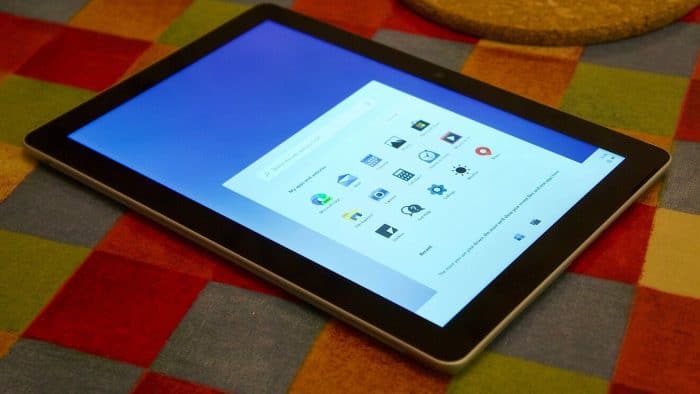Announced in October 2019, Windows 10x is the operating system for the Surface Neo, a new kind of dual-screen device. It is a modified version of Windows 10 whose interface is specifically designed for this type of device. It has a new explorer, a revised Start menu and many other modifications. In general, it offers a different experience from that of the standard system.
Microsoft has launched a Windows 10x emulator that allows developers to adapt their applications to the new interface, which allowed developers to have an overview of how the system looks on dual-screen devices. A developer who’s name is Gustave Monce has just spotted a new image in the emulator which suggests that Microsoft is working on a version compatible with larger devices, but also equipped with a single screen.
Windows 10X would also support tablets and PCs
Microsoft Emulator (used for 10X at the moment) supports a larger device, much bigger but also single screen. This might come out soon I guess? pic.twitter.com/cprO5WNit9
— Gustave Monce (@gus33000) April 28, 2020
In other words, Windows 10x could well be available in a version installable on classic tablets, even on traditional laptops. It could be the spiritual successor of Windows RT. It’s a version of Windows 8 that was available in October 2012 for ARM devices. It was available for some conventional tablets and convertible Surface computers (2-in-1).
Windows 10x would thus reach a wider audience since, like foldable smartphones like Galaxy Fold and the Huawei Mate X, dual-screen devices initially target a very small user base. These latest developments, however, do not allow us to consider a version of Windows 10x designed for smartphones. A decision that would, however, be good news for many nostalgic users of Windows Mobile.
For now, Microsoft seems to have resigned itself to the permanent abandonment of an OS designed for smartphones. The Surface Duo is living proof of this, the Redmond company has preferred to offer a customized version of Android by highlighting its applications rather than opting for a new operating system. However, we will wait for further developments.





